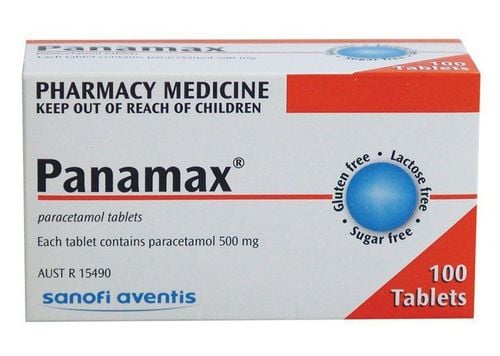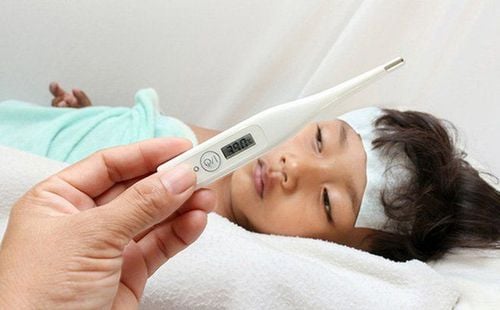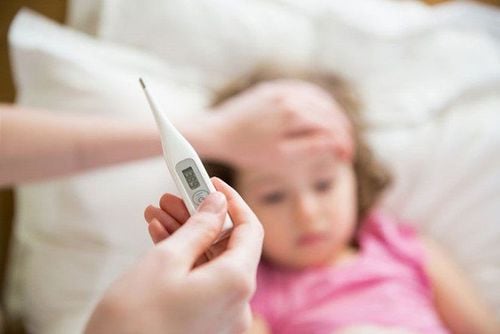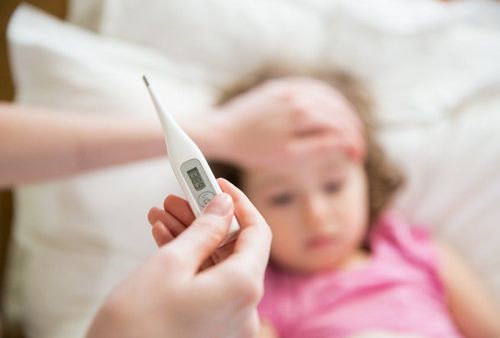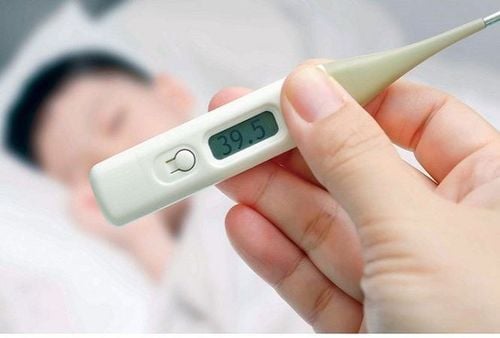The characteristic of Dengue fever is that there is no specific treatment. Therefore, patients need to be very careful when treating with medicine. The following article provides information on what medicine should not be taken for Dengue fever.
1. What medicine can not be taken for Dengue fever?
Dengue fever patients are treated based on their symptoms, with a focus on managing pain and reducing fever. However, not all drugs with pain relief and fever reduction effects are used for patients with Dengue fever.
Below are the drugs contraindicated in the treatment of Dengue fever:
• Aspirin: What medicine can not be taken for Dengue fever is Aspirin, an antibiotic that fights infection and reduces fever for patients. The interaction of drugs containing Aspirin will prevent platelets from meeting. When platelet density is not guaranteed or too low, it can cause bleeding or dangerous complications. In Dengue fever patients, the platelet count often drops sharply, if bleeding occurs, health will deteriorate rapidly and endanger life.
• Ibuprofen: This is an anti-inflammatory drug that has the effect of reducing pain and fever for patients. However, this drug is not used in the treatment of Dengue fever. The primary reason is that patients who take it are prone to bleeding or vascular damage.
• Non-steroidal anti-inflammatory drugs: Anti-inflammatory drugs can limit damage to patients, especially in viral attacks. Dengue fever patients should not be prescribed to use non-steroidal anti-inflammatory drugs because they can prevent platelet aggregation such as Aspirin. When the drug interacts, any bleeding in the patient may become difficult to control, leading to significant blood loss.
2. What medicine should be taken to treat Dengue fever?
Dengue fever patients typically do not have a specific medication for treatment. To date, patients with Dengue fever are classified according to the level of infection. For mild patients, outpatient treatment can be considered, and only in severe cases should inpatient treatment be considered. Therefore, most patients with Dengue fever are prescribed medication based on the cause of the disease.
Firstly, when a patient contracts the disease, they may experience a prolonged high fever, leading to dehydration and electrolyte imbalance.
Oresol is the electrolyte and rehydration solution conventionally used for patients with high fever.
Oresol can rehydrate but also has side effects that cause dehydration. Therefore, users should pay attention to taking the correct dosage to avoid adverse health reactions.
There is no specific virucidal medicine for the virus that causes Dengue fever. Therefore, the treatment goal is to use drugs to alleviate dangerous symptoms. Patients will have improved immune health during treatment, fighting the virus that causes the disease in the body. If the patient cannot drink Oresol, the doctor will prescribe intravenous fluids to supplement. Although infusion is not too complicated, it should be performed under the supervision of a doctor and nurse.
With symptoms of pain, discomfort and high fever, the patient will be prescribed antipyretics and pain relievers to improve. Paracetamol is a popular choice for this condition. This is an easy-to-use over-the-counter drug and is quite popular for all ages. However, patients should still talk to their doctor before using it to consider the appropriate dosage and timing.
3. Notes for patients with Dengue fever
Patients with Dengue fever may have reduced resistance due to a sharp decrease in platelet count. Therefore, treatment requires close attention to drugs that have negative interactions with health. Currently, there is no specific vaccine for the virus that causes Dengue fever, so this is a dangerous disease. Young children are especially susceptible to the disease through mosquito bites.
Most patients with Dengue fever can be cured. Only a very small number of complications appear after contracting the disease, so it is easy to be subjective. According to research and conclusions, Dengue fever is considered a dangerous disease that can threaten health after recovery. People who detect the disease at a late stage may experience shock or cardiac arrest. Usually, complications of the disease will appear after about 1 week from the time of contracting Dengue fever.
Each patient has a different level of immunity, so they also get sick at different levels. Therefore, there is no fixed medicine to treat or prevent the disease. Individuals need to have regular health check-ups or protect themselves from mosquito bites to prevent the risk of Dengue fever.
For the types of drugs that can be used for Dengue fever patients, it is recommended to consult a doctor for specific guidance and support. If you still wonder if Dengue fever should take any medicine other than fever-reducing and pain-relieving medicine, consult your doctor. With experience and expertise in the profession, doctors will help you answer all questions to prevent and treat the disease effectively.
To arrange an appointment, please call HOTLINE or make your reservation directly HERE. You may also download the MyVinmec app to schedule appointments faster and manage your reservations more conveniently.





